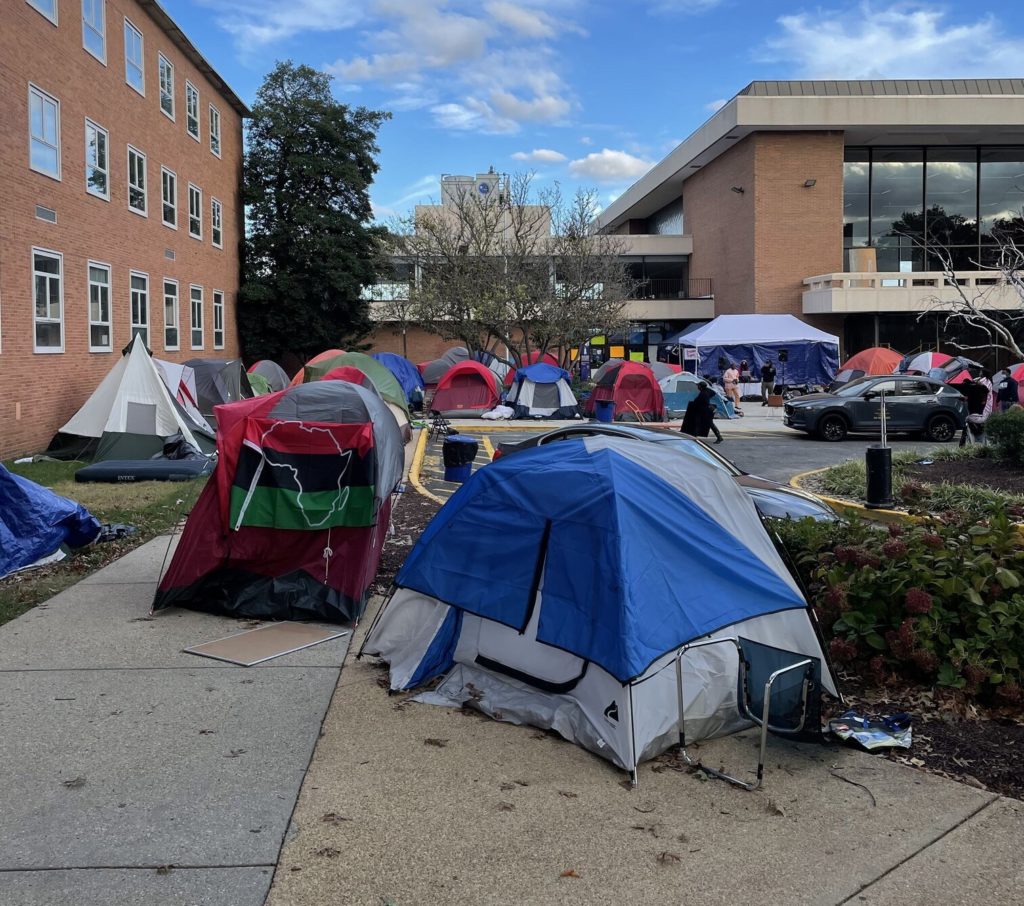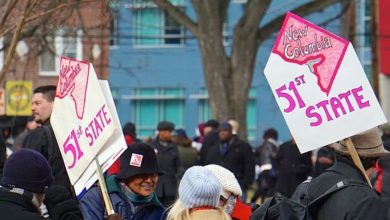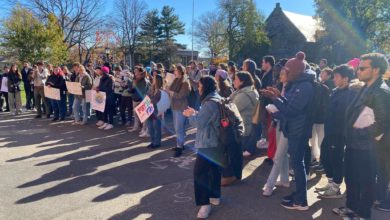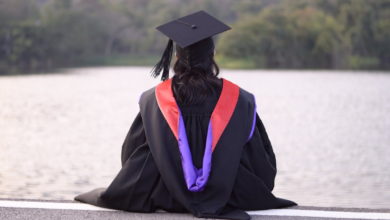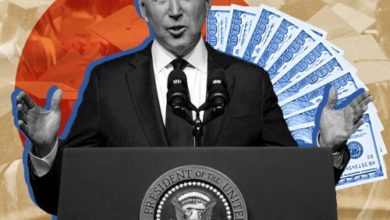Photo: Protesters outside the Blackburn Center
On Oct. 12, in Washington, D.C., dozens of Howard University students began occupying the Blackburn Student Center to protest housing insecurity and a range of associated concerns: poor on-campus living conditions, food insecurity, students being terrorized by on-campus police, nonexistent mental health resources, exorbitant fees for basic academic participation, financially oppressive institutional practices, inadequate infrastructure to battle COVID-19, lack of reliable internet infrastructure, poor financial aid resources, and the absence of any structural positions for student advocacy within the university’s administration.
Many of the Blackburn student demands, such as an in-person town hall meeting with President Wayne Fredrick, reinstatement of all affiliate trustee positions on the board of trustees, and a clear housing plan — are identical to the demands of similar protests that occurred in 2018 over on-campus conditions.
“In some weird twisted way this is part of your Howard experience,” said Jared Rodriguez, a Howard freshman, referencing the various student-led protests that have taken place over the years in response to recurring problems. “A lot of the issues that we are facing are not new,” said Erica England, a Howard University senior and student organizer. England elaborated: “People are questioning if this was the appropriate way we should have spoken up, and I think that when you’ve been talking to administration and nothing is moving, you have to do something bigger and this is the way we chose.”
Frustration over the administration’s inaction is compounded by the August 2021 move by the university to eliminate student, faculty, and alumni liaison positions on the Board of Trustees, subsequently limiting the avenues in which the Howard community can hold the administration accountable. England explained: “Generations past have fought for those seats and won. You would think that we should have a voice and have some level of power and decision-making when it comes to the governing body of the university. So my question is why the board of trustees does not want us there. They said that their stakeholders told them it’s probably what’s best. It makes me wonder why they can’t be transparent. What is going on that you don’t want students, or faculty, or alumni to know about?”
On the first night of the Blackburn occupation, the administration deployed MPD on student organizers, threatened expulsion for students participating in the sit-in, and barred entrance to Blackburn, cutting off students from access to COVID testing, food, supplies and other resources. Rodriguez remarked, “There’s a way that they handle it that exacerbates the issue. It’s just funny because this is the most Howard way to handle it.” Shutting down Blackburn was especially pertinent given that it isn’t just a freshman dorm, it’s also one of two on-campus dining halls, only making worse widespread issues with reliable access to food.
Rodriguez said that he had to skip lunch that day because the other cafeteria, six blocks away from campus, was too busy and doesn’t take the meal plan. “There are people who can’t afford the price of the meal plan so they’re literally on their own when it comes to finding something to eat. There’s no food pantry,” said one Howard freshman gathered among friends on the quad next to Blackburn.
Food insecurity is rampant on Howard’s campus. According to a 2019 study, 77% of the sample of Howard University students surveyed, had faced food insecurity in the last 12 months.
Conditions under capitalism: What else are students facing?
Howard University freshmen have led much of the organized resistance, maintained the outside and indoor fronts of the sit-ins, and mobilized many of their fellow classmates. One freshman, who preferred not to be named, but was a vocal force in the speak-outs occurring that day, said:
“The juniors and seniors don’t know where they’re going to go. They’re facing housing insecurity, food insecurity, among so many other things. Undocumented students — they just don’t get any financial aid. They’re just left to figure it out. They’re just left to deal with it. Students who don’t have housing — they just have to deal with it. This school is inherently classist. I’m currently about to fail my algebra class because I can’t afford the $105 access code to access and upload and submit my work into the portal. I have to pay to do my work and I can’t afford that. If I spend $105 on an access code for the week, I’m not going to be eating that day, maybe not even the next day either.”
Bria, who is a junior, said, “students are asking for basic things: asking to be safe with their living, asking to make sure that their facilities are clean and healthy for them to live in. They just want to see action” Another junior says that, “These are all preventable things. Howard has the money and the resources. If they have the money, where is it going? Where are they putting it? Where are they investing it?”
The resources are in fact being invested and mobilized in service of gentrification, exploitation, and to line the pockets of the rich. In 2019, Howard University generated $73,774,000 in total net income after functional expenses from a diversity of sources, most notably its hospital and real estate assets where Howard is able to extract the maximum amount of resources from poor and working-class people in dire conditions. University President Wayne Fredrick makes $1.67 million dollars annually as the highest paid university president in the District of Columbia.
Howard’s investments, business partnerships, and shareholders dictate the administration’s allocation of resources. Forming active partnerships with private developers is not only directly influencing the current state of housing insecurity on campus, but occurs within the wider context of rampant D.C. gentrification.
In 2016, Howard University struck a $22 million deal with Jair Lynch Real Estate Partners to turn a residence hall into luxury apartment buildings. Only 8% of the apartments have to be reserved for families making at or below 50% or 80% of the area median — an income limit of $54,600 or $87,360 for a family of four. In 2018, Howard University leased George Washington Carver Hall and Lucy Diggs Slowe Hall to private real estate development companies Urban Investment Partners and Neighborhood Development Corporation, companies that are implicated in gentrification projects occurring throughout the District. The $50 million dollar renovation projects allows Howard to retain ownership of the property, while still being able to receive revenue over time, all while students are effectively barred from being able to live there. Current rentals list for $1,700 for a one bedroom and $2,500 for a two-bedroom.
Among other properties, the college also purchased a commercial strip on Georgia Avenue in 2016. The 8,000 square foot “incubator space” is used as a workspace for tech startups, serving the interests and needs of the rich and well-off professionals, rather than the community at large who are predominantly made up of working-class people making at or below the federal poverty level. The folks who have lived on Georgia Avenue for generations, like the larger D.C. community, are in need of affordable food, housing, and healthcare options rather than an “incubator space.”
These practices have reduced the amount of available housing on campus, forcing students to struggle often at the very last minute to find affordable housing in the largely unaffordable surrounding D.C. neighborhoods. Howard’s business deals with D.C. developers allow the university and its shareholders an opportunity to profit from investments in gentrification, at the expense of Black students and the larger community. “I know so many students are sleeping on couches, in cars, and literally on the streets because of this,” one student told Liberation News.
However, when students do secure on-campus housing, which costs $4,700 per semester, they are subjected to unspeakable conditions. “I’ve seen rats, I’ve seen mushrooms growing in the showers, green pus oozing from showerheads — deplorable and disgusting conditions. My air filter hasn’t been changed since March 22, 2020. That’s the date that it says it was most recently changed. It is October. My air filter is disgusting. I keep waking up sick. I had to go home because I thought I had COVID-19. I needed a bronchodilator to open my lungs back up it was that bad,” said the Howard University freshman leading many of the speak-outs. Erica England described a rat running across her feet in the shower during her freshman year. Another freshman who lives on campus, Brianna Richards, said, “Someone was coughing up blood in class because of all of the mold in the dorms.”
These are not immutable realities and conditions of life, existence and society. But they become far too common under capitalism. That is why Howard students continue to struggle. Local organizations like Freedom Fighters DC, Live Movement, and Harriet’s Wildest Dreams have organized alongside students, providing breakfast, lunch, and dinner, in addition to tents, sleeping bags, water, pillows, blankets, clothing, protection and medical care. When asked what she thinks is most important for people to take away from Blackburn, England says that it is the history of struggle engendered in the consciousness of the student body: “People forget the conditions around why these historically Black colleges and universities were created. They were created out of resistance. They were created out of struggle and we cannot let outside influences infiltrate and hurt Black universities and Black communities. We are not going to let them take the school from us. This is our school. This is our home.”


